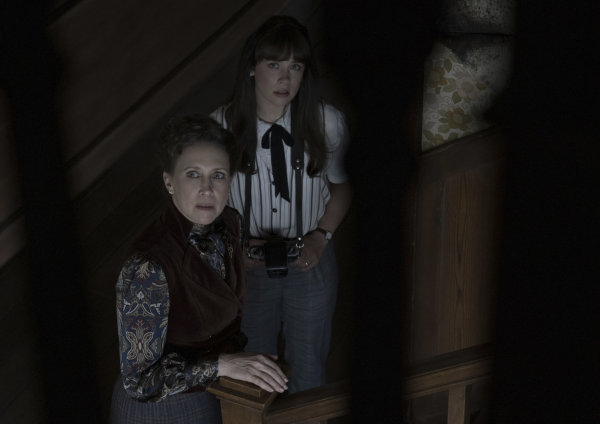Justice Ginsburg’s Death Reminds Us To Fight Inequality
Ruth Bader Ginsburg passed away September 18th at 87 after 27 years serving on the Supreme Court. Her death is a siren call to continue the fight for women’s rights and injustice in this ironically unequal country.
Justice Ginsburg has always been a strong pillar in the deconstruction of inequality that riddles this country for women and other groups. Her seat on the Supreme Court alone is a triumph as she was only one of four women to sit on the Supreme Court compared to the towering 110 men to ever serve.
This is but one small fraction of her accomplishments. In 1972, she co-founded the Women’s Rights Project at the American Civil Liberties Union (ACLU). The Women’s Rights Project “empowers poor women, women of color and immigrant women who have been subject to gender bias and who face pervasive barriers to equality.”
Without Ginsburg, women could still be rejected by schools on the bias of gender, however Ginsburg wrote the majority opinion on the 1966 United States v. Virginia case that this was unconstitutional.
She also aided in the process of the Equal Credit Opportunity Act (1974) which allowed women to sign a mortgage and create a bank account without a male co-signer.
Ginsburg was a huge advocate for women serving as judges, they previously only served on jury duty as they were still viewed in a nuclear family mentality. She argued against the outdated ideology saying that women should be able to serve on the basis they are to be valued the same as men. Once appointed a judge herself as a Supreme Court Justice she was apart of many historic court rulings such as same sex marriage.
Most importantly, she was in the minority on the case decision of Ledbetter v. Goodyear Tire and Rubber Co, a case of pay discrimination. The court ruled the claim of Ledbetter was time-barred (barred by the passage of time under a legal statute).
Justice Ginsburg accomplished much in her time and more than paved the way for women and minorities to reach a level of equality to that of white male Americans. However, these issues are not outdated nor far from over. The pay gap between men and women has not been eradicated and if something is not done now is expected to stay in place for quite some time.
According to Insider, “In 2018, a woman working full time earned 81.6 cents for every dollar a man working full time earned on average. Additionally, women’s median annual earnings were $9,766 less than men’s, according to the most recent available data from the US Census Bureau,” and “progress has been made toward pay parity between the sexes, the Institute for Women’s Policy Research estimates that it will not be reached until 2059.”
By the look of these statistics, young women emerging from Generation Z (1995-2012) would not receive equal pay until they are middle-aged. Not to mention, the wage gap is more severe for women of color being 66% for black women and 58% for hispanic women.
Many Americans view these issues as ancient like battles won long ago, but the facts show they are alive and loud. Ginsburg was a part of a long line of women who have locked and loaded the weapons ready, but we as a generation have to aim the missiles and fire to finally bring home the win.
In this age of cancel culture and Black Lives Matter, this fight is winnable. People are tired of ballant discrimination and inequality. Luckily, a proposition has made it to ballot this voting season that can bring change to this issue.
California Proposition 16 is a repeal of the 209 Affirmative Action Amendment which prohibited state institutions to consider race, sex, or ethnicity in areas of public employment. While this sounds as if it would be beneficial, it blocks Californians from fair wages and equal opportunity based on sex and color.
As stated by the Official Voter Information Guide for the state of California, “Prop. 16 expands equal opportunity to all Californians, increasing access to fair wages, good jobs, and quality schools for everyone. Prop. 16 fights wage discrimination and systematic racism, opening up opportunities for women and people of color.”
However, the downside of a vote yes would repeal aforementioned 209 the blocks discrimination in public office employment, but it in turn promises to restore those effects by providing equal opportunity.
With all the work Justice Ginsburg has done for women and minorities, it is more than important to not only honor her legacy, but keep up her work and slowly chip away at the inequality that divides us.
Justice Ginsburg was a bold, strong woman and we can not let her down now.
“Liberty and justice for all.”




